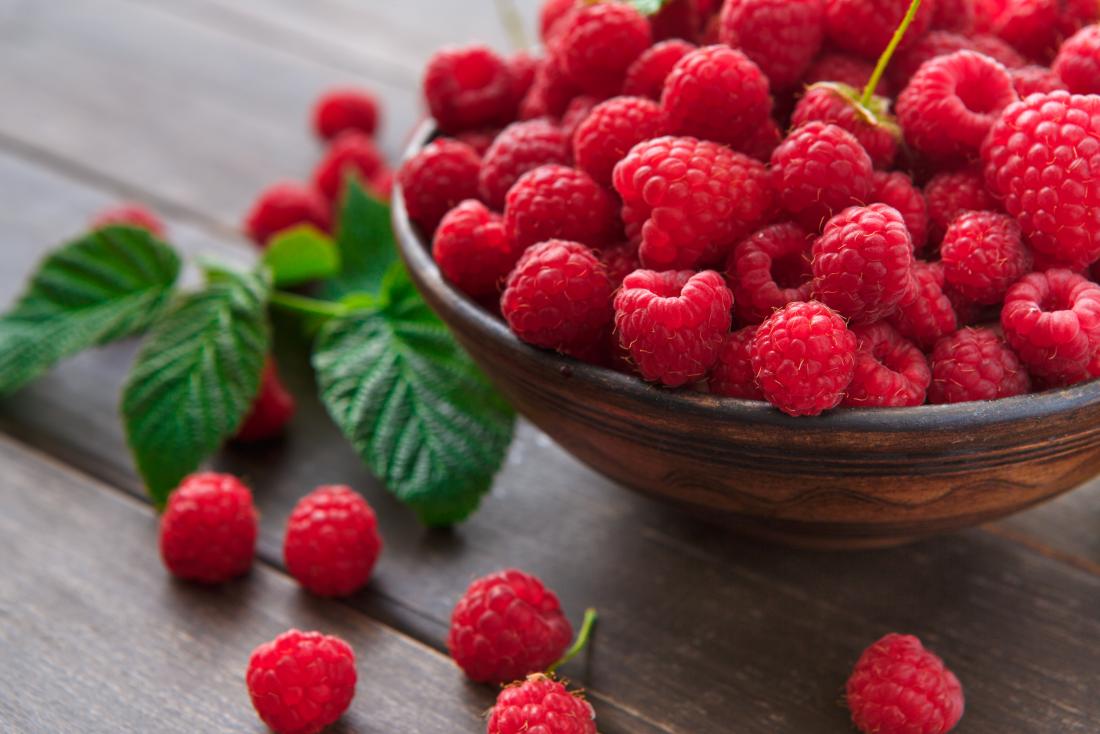Introduction

Raspberry ketones are natural compounds found in red raspberries (Rubus idaeus) that give the fruit its distinct aroma. These compounds are phenolic in nature, meaning they contain a hydroxyl group attached to an aromatic hydrocarbon group. Beyond their natural occurrence in raspberries, raspberry ketones can also be found in other fruits such as cranberries and blackberries, albeit in smaller quantities. Due to their appealing fragrance, raspberry ketones are commonly used in perfumes, cosmetics, and as flavoring agents in foods.
Definition of Raspberry Ketones
The isolation of raspberry ketones dates back to the early 20th century when scientists first identified the compound responsible for the characteristic scent of raspberries. Since then, raspberry ketones have been extensively studied for their potential health benefits, particularly in the field of weight management. The interest in these compounds surged in the late 2000s when they were promoted as a “miracle” weight loss supplement, largely driven by endorsements from popular health shows and fitness experts.
Popularity and Market Presence
Raspberry ketones have gained significant popularity in the dietary supplement market. Their appeal lies in the claimed benefits for weight loss and metabolism enhancement. Marketed in various forms such as capsules, tablets, and powders, raspberry ketones are widely available online and in health food stores. According to Market Research, the demand for raspberry ketones has continued to grow, fueled by consumer interest in natural weight loss solutions. However, it is essential for consumers to be aware of the regulatory status and scientific evidence supporting these claims to make informed decisions about their use. (refer to WebMD).
Chemical Composition and Extraction
Raspberry ketones are chemically known as 4-(4-hydroxyphenyl) butan-2-one. This structure consists of a phenolic ring, which is an aromatic hydrocarbon ring with a hydroxyl group (-OH), and a butanone group, which is a ketone with a four-carbon chain. This specific structure is what gives raspberry ketones their unique aromatic properties and potential biological activities. The compound is a member of the larger family of phenolic compounds, which are known for their antioxidant properties.

Natural Sources and Synthetic Production
Raspberry ketones are naturally occurring in red raspberries (Rubus idaeus), where they are present in very low concentrations. Other natural sources include blackberries, cranberries, and kiwis, but these fruits contain even smaller amounts of the compound. Due to the low natural abundance, extracting raspberry ketones directly from fruit is not cost-effective for commercial use. Healthline
Claimed Health Benefits
One of the primary claimed health benefits of raspberry ketones is their role in weight loss and fat burning. Studies have suggested that raspberry ketones can enhance lipolysis, the process by which fat is broken down in the body. This effect is thought to be mediated through the increased production of adiponectin, a hormone involved in regulating glucose levels and fatty acid breakdown. Research has shown that raspberry ketones can promote the breakdown of fat in fat cells, potentially leading to reduced body fat and weight loss.
Weight Loss and Fat Burning
In animal studies, raspberry ketones have been observed to prevent high-fat diet-induced increases in body weight. For example, a study conducted on mice showed that raspberry ketone supplementation led to significant reductions in body fat accumulation. The proposed mechanism is that raspberry ketones increase norepinephrine-induced lipolysis, which enhances the release of fatty acids from adipose tissue. While these findings are promising, it is important to note that human studies are limited, and more research is needed to confirm these effects in humans..
Appetite Suppression
Another potential benefit of raspberry ketones is appetite suppression. The compound is believed to influence hormones related to hunger and satiety, thereby reducing overall food intake. Some studies have suggested that raspberry ketones may affect the levels of leptin, a hormone that signals fullness to the brain. By modulating leptin levels, raspberry ketones could help in reducing appetite and preventing overeating.
Scientific Evidence and Research

Research on the effects of raspberry ketones has primarily been conducted on animals. These studies provide preliminary insights into the potential mechanisms and benefits of raspberry ketones, although the results may not always translate directly to humans.
Overview of Studies on Animals
One of the key findings from animal studies is that raspberry ketones can influence fat metabolism. For instance, a study on mice fed a high-fat diet showed that raspberry ketone supplementation resulted in reduced body weight and fat accumulation. The researchers noted an increase in lipolysis, the breakdown of fats, which was attributed to the elevated levels of adiponectin, a hormone involved in regulating glucose levels and fatty acid breakdown. (ResearchGate).
Human Clinical Trials and Their Results
While animal studies provide valuable insights, human clinical trials are essential to confirm the efficacy and safety of raspberry ketones in people. However, there are relatively few human studies on the effects of raspberry ketones, and the results have been mixed.
Limitations and Gaps in Current Research
Despite the promising results from animal studies and limited human trials, there are significant limitations and gaps in the current research on raspberry ketones. (according to paper from ResearchGate).
How to Use Raspberry Ketones
Raspberry ketones are available in various forms, catering to different preferences and uses. WebMD
Forms Available
1. Supplements: The most common form is oral supplements, typically available as capsules or tablets. These supplements are convenient and easy to incorporate into daily routines.
2. Topical Applications: Raspberry ketones are also found in creams, lotions, and serums for topical use. These products are often marketed for their potential benefits in improving skin elasticity and promoting hair growth.
3. Powders: Raspberry ketone powders can be mixed with water, smoothies, or other beverages. This form is suitable for individuals who prefer a more flexible dosage and application method.
4. Food and Beverages: Some health food products and beverages are fortified with raspberry ketones. These include protein shakes, energy drinks, and health bars, providing an alternative way to consume the compound.
Recommended Dosages
Determining the optimal dosage of raspberry ketones can be challenging due to the variability in study designs and product formulations. However, general guidelines are available based on existing research and manufacturer recommendations.
Combining with Other Supplements or Diets
Raspberry ketones can be combined with other supplements and dietary strategies to potentially enhance their effects.
Safety and Side Effects
While raspberry ketones are generally considered safe when used in moderation, some users may experience potential side effects and adverse reactions.
Potential Side Effects and Adverse Reactions
Commonly reported side effects of raspberry ketone supplements include:
Interactions with Medications
Raspberry ketones may interact with certain medications, potentially altering their effectiveness or increasing the risk of side effects.
Guidelines for Safe Use
To ensure the safe use of raspberry ketones, consider the following guidelines: WebMD.
